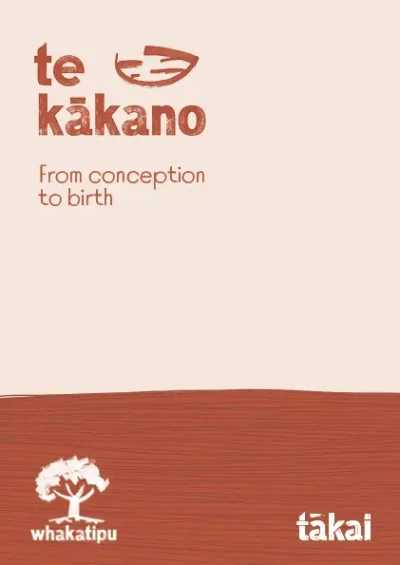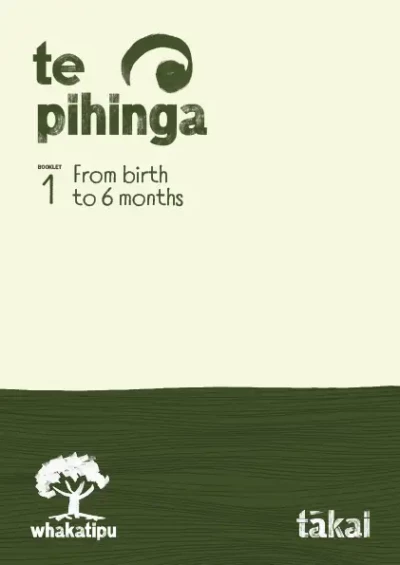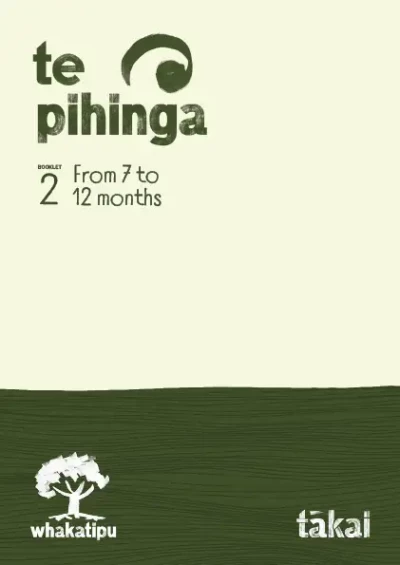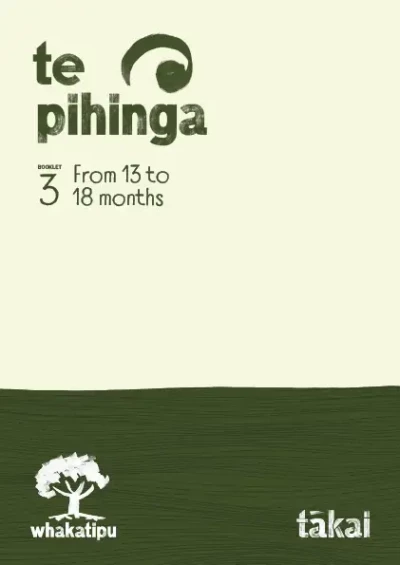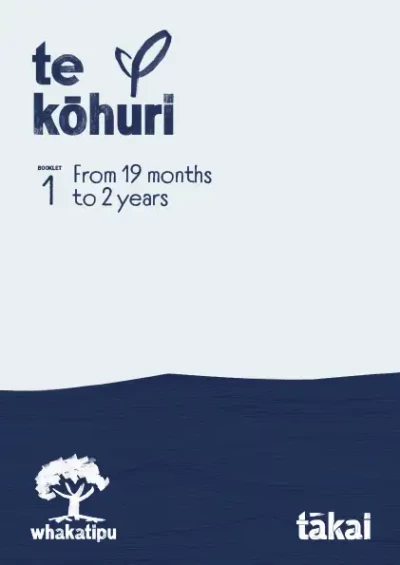
Kōrero mai, e aroha ana koe ki ahau Tell me you love me
Comforting baby when they're stressed and making them feel special will reduce stress and help baby develop a healthy brain. This will make them more able to live as successful adults.
By Brainwave Trust Aotearoa
Caring for baby in a loving way needs to begin before birth — unborn babies are already learning about their world.
Everything that mum eats and drinks can affect baby. Taking drugs, drinking alcohol or smoking cigarettes can harm baby’s developing brain. If mum is experiencing high levels of stress, the stress hormone cortisol can cross the placenta and affect baby’s brain. This may have long-lasting effects on baby’s physical and psychological development.
Mums need to take good care of themselves through the pregnancy. Partners, whānau and friends can help with this.
Being gentle with baby after birth
After birth, holding baby close, rocking baby, talking and singing to baby are all food for baby’s brain. Gentle touch is how babies first know they are loved. When parents gaze into baby’s eyes and talk or sing in a calming way, ‘happiness’ hormones – dopamine, oxytocin and endorphins – are released in the brain of both baby and parent.
Parents can watch baby’s cues to see what baby likes best. A very young baby may only cope with one of these happening at a time.
Loving interactions with parents are the most important stimulation baby can have. Baby cries to let their parents know that something isn’t right, and parents need to respond as soon as they can. This is loving baby, not spoiling them. Being comforted by parents helps baby feel secure, safe and loved. Baby is learning to trust.
Parents also need to laugh and have fun with baby and let them know that they’re special. These are some of the building blocks for a secure attachment relationship, which is the key to healthy development.
Secure attachment
A secure attachment helps the brain centres for relationships, coping with stress and problem-solving to grow and develop. Babies who have a secure attachment relationship are curious and confident to explore. They know that their parents are there for them when they need comfort or reassurance.
Supporting baby’s exploration and providing comfort when baby signals a need are both important components of a secure attachment relationship.
Babies who have a secure attachment with their primary caregiver are:
- happier
- more interested in learning
- able to cope better with stress
- likely to do better when they go to school
- more likely to have good friendships
- likely to feel good about themselves
- more likely to develop empathy – the ability to share someone else’s feelings.
A secure attachment teaches baby what they should expect from relationships with people they love throughout life.
Helping a baby to manage stress is a big part of a secure attachment relationship. Babies need help to manage their emotions so they don’t become overwhelmed by them. When they’re upset, their bodies release cortisol, a stress hormone. Cuddling an upset baby can bring their stress levels down.
When babies have this loving attention from their parents, they gradually learn to manage their own emotions in difficult situations.
Everyday interactions are important
Loving baby and making baby feel special and safe happens through everyday interactions with parents. When parents have spent the day caring for their baby, they may feel they’ve got ‘nothing’ done, but what they have done all day is so important – they’ve helped baby feel happy, safe and secure, which helps baby grow a healthy brain.
Summary
- An unborn baby can be harmed if mum uses drugs, drinks alcohol, smokes cigarettes or has high levels of stress.
- Babies need to be cuddled, rocked, gazed at and talked and sung to for healthy brain development.
- Babies cry to tell parents they need something, and parents need to respond as soon as they can.
- Babies are likely to develop a secure attachment relationship when parents read their cues, comfort them and show them that they’re special.
- A secure attachment helps to build a healthy brain.
- Babies with a secure attachment are more likely to be confident, do well at school, have good friendships and relationships and learn how to cope with stress.
Brain development information has been woven throughout the Whakatipu booklets, describing what's happening for pēpi in their 'hinengaro mīharo’ (amazing brain) at different stages. This gives parents simple neuroscience information to support them with their parenting:
- Te Kākano, page 9 – caring for baby before birth
- Te Pihinga 1, page 7 – caring for baby helps brain development
- Te Pihinga 1, pages 8 and 9 – responding to and calming baby
- Te Pihinga 1, pages 16 and 17 – building a secure relationship
- Te Pihinga 2, page 25 – talking face-to-face with baby
- Te Pihinga 3, page 9 – positive experiences create happy memories
- Te Pihinga 3, page 24 – love and play nurture baby's brain
- Te Kōhuri 1, page 8 – feeling safe is important for new learning
Learn more
Circle of security
Brainwave Trust
Circle of Security International presents a video on relationship tools for parents to help them meet their child's attachment needs.
Center on the Developing Child: Toxic stress derails healthy development
YouTube
Learning how to cope with adversity is an important part of healthy development.


